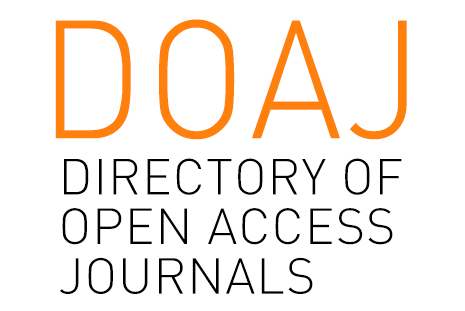Location
The Directory of Open Access Journals was launched in 2003 at Lund University, Sweden, with 300 open access journals and today contains ca. 10000 open access journals covering all areas of science, technology, medicine, social science and humanities.
DOAJ is a membership organisation and membership is available in 3 main categories: Publisher, Ordinary Member and Sponsor. A DOAJ Membership is a clear statement of intent and proves a commitment to quality, peer-reviewed open access. DOAJ is co-author to the Principles of Transparency and Best Practice in Scholarly Publishing (Principles) and DOAJ members are expected to follow these principles as a condition of membership. DOAJ reserves the right to reject applications for membership, or revoke membership if a member or sponsor is found to contravene the Principles. Read more about membership here.
DOAJ is a community-curated list of open access journals and aims to be the starting point for all information searches for quality, peer reviewed open access material. To assist libraries and indexers keep their lists up-to-date, we make public a list of journals that have been accepted into or removed from DOAJ but we will not discuss specific details of an application with anyone apart from the applicant. Neither will we discuss individual publishers or applications with members of the public unless we believe that, by doing so, we will be making a positive contribution to the open access community.
DOAJ publishes Information for Publishers on this site to help Publishers adhere to the Principles and to assist them in completing an application. DOAJ also publishes a list of FAQs relevant to all members of the publishing community, particularly libraries and authors. All information on this site is available to both members and non-members.
Aims & Scope
The aim of the DOAJ is to increase the visibility and ease of use of open access scientific and scholarly journals, thereby promoting their increased usage and impact. The DOAJ aims to be comprehensive and cover all open access scientific and scholarly journals that use a quality control system to guarantee the content. In short, the DOAJ aims to be the one-stop shop for users of open access journals.
Members:
Resources
Displaying 181 - 185 of 783Evaluation and mapping of cultural services in terraced landscapes. The case study of the Amalfi Coast
Cultural landscapes are a key resource for sustainable development. Among them, terraced landscapes are classified as “evolutive living” landscapes (UNESCO, 2012), an expression of the historical interrelationship between man and his territory. Currently many terraced landscapes are considered at risk because of the changed socio-economic conditions.
The use of collaborative digital platforms in the perspective of shared administration. The MiraMap project in Turin
The paper intends to illustrate an innovative approach to urban planning and shared Administration based on the use of collaborative digital platforms involving the Public Administration /
citizen.
The use of collaborative digital platforms in the perspective of shared administration. The MiraMap project in Turin
The paper intends to illustrate an innovative approach to urban planning and shared Administration based on the use of collaborative digital platforms involving the Public Administration /
citizen.
BROWNFIELDS REGENERATION, BETWEEN SUSTAINABLE URBAN DEVELOPMENT AND CULTURAL HERITAGE. THE FORMER MILITARY SITES IN ORADEA, ROMANIA
The post-Cold War conditions, following the collapse of the USSR, brought radical socio-economic changes in Central and Eastern Europe, including the process of military restructuring – a process of military relocation, which resulted in huge amounts of under-used land. Many regions are facing development dilemmas while experiencing demilitarization transformations, as the process has left behind in many cities large areas of abandoned and potentially contaminated tracts of land.
Multi-Functional Lands Facing Oil Palm Monocultures: A Case Study of a Land Conflict in West Kalimantan, Indonesia
This paper presents an ethnographic case study of a palm oil land conflict in a Malay community in West Kalimantan, Indonesia. The conflict occurred in the preparatory phase of a large-scale plantation, before any oil palms were planted. After protest from local communities, the project was abolished. This case enables an empirical enquiry of land tenure as well as the meaning of land and associated resources for people’s livelihoods in a pre-plantation situation.


